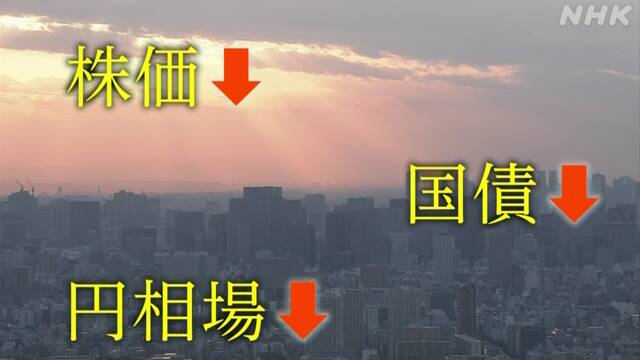On the Tokyo stock market on the 3rd, the Nikkei Stock Average fell sharply by more than 500 yen. Japan government bonds and yen prices also fell, resulting in a so-called "triple low." The background is the downgrade of U.S. government bonds for the first time in 12 years.
On the 2nd, the Nikkei Stock Average plunged more than 700 yen at the closing price of the Tokyo stock market.
On the 3rd, the stock average fell almost all the way, and the Nikkei Stock Average fell significantly by more than 500 yen at the closing price.
In the bond market Japan selling of government bonds intensified, and long-term interest rates rose to 0.655 percent at one point, the highest level since January 2014.
The background is that a major credit rating agency downgraded the rating of U.S. government bonds on January 1 for the first time in 1 years.
As a result, long-term interest rates in the United States rose, pushing up long-term interest rates in Japan.
In addition, the Bank of Japan's decision to allow the Bank of Japan to exceed the upper limit of the fluctuation range of long-term interest rates, which had been set at around 12.28 percent, at the meeting on March 0 last week and reviewed its policy management, which also led to a rise in long-term interest rates.
Furthermore, due to the firm employment situation in the United States, the view that monetary tightening will continue is increasing, and the view that the difference between interest rates between Japan and the United States will widen, temporarily lowered the yen to the latter half of the 5 dollar = 1 yen range.
As a result, the Tokyo market experienced a so-called "triple decline" in which stocks, government bonds, and the yen fell in price.
Market participants said, "Investors are increasingly trying to avoid risks due to concerns about the future of the U.S. economy."

